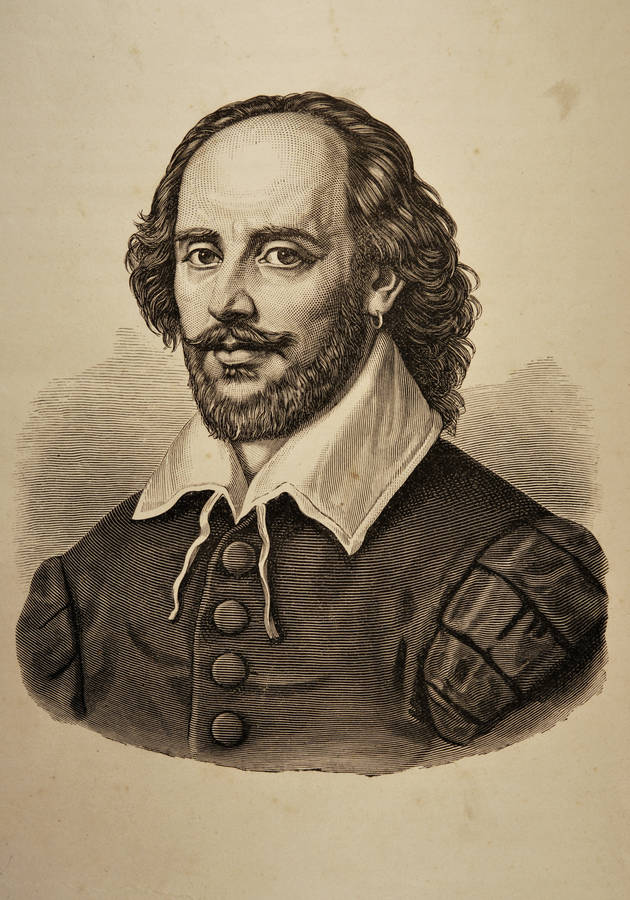There is so little written about Brazilianbillionaires, and the "Made in Brazil" fortunes. In Brazillionaires, Alex Cuadros explores the history of Brazilian billionaires. The book was considered one of the best books of 2016 by the Financial Times. In it, Alex tells us a little about Brazil's past, and about how these billionaires have accumulated wealth - and in some cases even about how they lost it. In this narrative, Cuadros helps us understand how social inequality has grown in the country and how the relationship between politicians and businesspeople shapes the Brazilian business world. It is interesting reading for those who seek to understand the creation of Brazilian fortunes and the patterns that permeate them. Let's explore this microbook together and head into the Brazilian universe?
Brazilian Economy is Gigantic
When Bloomberg News invited American journalist Alex Cuadros to talk about Brazilian billionaires, he felt obliged to investigate how developing countries were playing an important role in the world economy and how social inequality was transforming these countries. Brazilian billionaires and their enormous fortunes are at the top of the economic pyramid and extravagantly accumulate power and wealth. They are among the 0.001% richest men in the world.
But Alex was researching and had some difficulty finding such billionaires. He discovered Ambev's and 3G Capital billionaires, but could not find so much more. Gradually he discovered the hidden billionaires. They were behind companies such as the Schincariol and Devassa breweries, and big contractors such as Camargo Corrêa and Odebrecht. All of these had billion-dollar deals, but none of these people were on Forbes' list of the richest people. That's what they wanted: to remain invisible. They did not want attention, for they knew their fortunes hid dark stories.
In the four years that Cuadros accompanied these billionaires, he learned how these men took advantage of the economy, government and the media in Brazil to enrich and win the admiration of the population.
Although it is the largest country in South America and the fifth largest in the world, Brazil is, especially for the Americans, a mysterious place that refers to clichés like samba and soccer. The country is rich in natural resources and has a beautiful history, but little is known about its economy, outside of it.
With a corrupt and bureaucratic government and high levels of poverty, it is clear that Brazil, from an economic perspective, is a very backward country compared to economies such as the American or the German.
Recently, the country has achieved international prominence, along with Russia, India, and China, as one of the BRIC members. Together, these four countries were seen as future powers of the world economy. Meanwhile, while China is still seen this way, prospects for Brazil have changed a lot. From a country that was a candidate for being one of the world's power to one with uncertain future.
Badly Served And With Little Economic Freedom
You probably already knew this, but Alex opens his book explaining to the reader that for most Brazilians, it is difficult to access basicneeds in life. Education, health and basic sanitation are not universal access items. The great truth is that a high percentage of the population outside the big capitals does not have access to these services. Also, the capitals are full of favelas and regions without the necessary infrastructure to accommodate citizens with the minimum comfort needed. Brazil has a system of public education of deficient quality and hospitals wholly scrapped for those who depend on public services.
Although the Brazilian constitution guarantees free health care, if you have a health problem and do not have a private health plan in Brazil, you may have to wait all day in the emergency room. The hospital will lack professionals, equipment, and medicines. It means that Brazilian's rights are not very trustworthy.
Another important and limiting aspect of the Brazilian economy is that there is a lot of bureaucracy to perform basic tasks like opening a bank account or installing a telephone line. Also, cancelling these services is even more complicated. When you try to change your internet provider, for example, there is so much resistance that you may need to file complaints with the responsible government agencies.
Legal work becomes even more difficult because you need to register your signature and recognize it in a physical notary office before sending any document to the government. Even to perform the most basic tasks the Brazilian may have to wait for hours and fill out dozens of forms! For a company to make its income tax, for example, it needs thousands of hours a year, according to government statistics. It creates a parallel market for the bureaucracy of accountants, lawyers, and dispatchers who help people and businesses navigate this chaotic ocean by charging for it.
Abyss Between The Rich and Poor
Brazil has made great strides in the last decades. The previous generation saw an impoverished country and fought against the dictatorship that ruled the nation from 1964 until the return of democracy in 1990.
With the return of democracy, exports of commodities such as coffee, sugar, soybeans, and beans have helped Brazil become the seventh largest economy in the world. Today, Brazil is also a major oil producer, ranking tenth in the world. In this context, we are faced with a curious scenario: How can such an unsophisticated economy generate so many billionaires?
Jorge Paulo Lemman is a famous Brazilian entrepreneur, born in Rio de Janeiro in 1969. He majored in economics at Harvard and is considered one of the richest men in the world by Forbes magazine. He joined Marcel Telles, also a famous Brazilian businessman with a fortune estimated at $ 48 billion and Beto Sucupira, the fourth richest man in Brazil.
In 1982 all three of them bought Lojas Americanas and Brahma - which later merged with Antarctica, giving rise to Ambev. In 2004, 3G Capital, a Brazilian private equity fund with headquarters in New York and Rio de Janeiro, was created.
3G Capital controls popular American brands such as Budweiser and Burger King. In 2013, 3G Capital announced the purchase of Heinz in partnership with the Berkshire Hathaway group of the famous multi-billionaire Warren Buffet. By the end of 2013, the 3G capital had a market value of 187 billion dollars.
Impressive, isn't it? This recent history of building a billionaire empire looks like a history of building the great fortunes of the American market in the last century, doesn't it?
Despite Brazil's economic advances, the rich and the poor are still very divided; especially regarding the treatment, they receive from law and government.
While those accused of smallercrimes such as theft or selling recreational drugs must wait for a judgment behind bars, the situation is different for the richer.
The wealthy have the resources to pay for appeals and hire lawyers who take advantage of loopholes in the legal system and delay the judicial process while clients stay free for long periods of time.
A story that proves this is from Paulo Maluf, the former mayor of the city of São Paulo. Maluf had a political career of 5 decades and was accused of numerous acts of corruption throughout it. Meanwhile, he lived in a gigantic mansion and collected cars, including having invested to double the power of his Porsche 996 in a customization workshop. Maluf was friends with most prominent businesspeople in Brazil and seemed to live in the same style as them.
In 2011, Brazilian courts already had evidence showing that he had diverted about $ 19 billion from public coffers only during his mandate as mayor of São Paulo. His practices of illicit enrichment were based on the overpricing public works, and thus he received money from the private initiative, from companies like Mendes Júnior and OAS.
Maluf is also wanted by Interpol for various international crimes, such as forgery of documents and money laundering. Despite all this, Paulo Maluf is still loose. The slow and bureaucratic Brazilian judicial system and its resources to afford good lawyers mean that justice cannot condemn him and he is still at liberty.
Corruption As Part Of The Brazilian Culture
In his book, the author affirms that the Brazilian is cordial, a word that has its origin in another word, heart. In a society that is moved by the heart, people tend to value their ties more than institutions. One of Brazil's richest men in the 16th century built his fortune by handing out favours while he was the assistant to the rulers. That meant that in Brazil, government meant something patriarchal. It was the ability to distribute positions to family and friends.
In this colonialist system, the public authorities distribute favours to their friends. However, this does not only occur in the public sphere. It was also through this type of arrangement that many of the Brazilian entrepreneurs came to power and conquered their fortunes.
This colonialist way of being has origins in the distant past. When King John VI of Portugal left Europe to escape Napoleon, he arrived in Brazil in a terrible political and economic situation. To obtain funds, in 1808, he divided Brazilian lands into hereditary captaincies and sold Brazilian assets to his Portuguese friends of the royal family. There arose the roots of corruption that became part of Brazilian culture, especially in the business world.
In 1964, the military assumed the government under a dictatorial regime. Five years later, they created an initiative called Operation Bandeirantes or Oban, which was nothing more than a program to unmask politicians and protesters who were against military interests.
The entity was financed from the beginning by some businessmen from São Paulo, such as Henning Albert Boilesen, then president of Ultragas.
The organization used torture during interrogations and oppressed those with ideological differences. Among its victims is the former president of Brazil, Dilma Roussef, for example.
With the military in power, entrepreneurs had little choice but to accept the status quo, so that their business would not be harmed. Some realized that cooperating with Oban also meant that the businessman was in a good position with the politicians who controlled Brazil and helped the business grow. At that time, the economy was in trouble, and many businesspeople believed that supporting Oban would help them keep their business running. Unfortunately, even today, this type of cooperation between business people and politicians is still prevalent in Brazil, and a significant portion of the most significant companies in the country are run by people who have allied themselves with the government at some point.
Another sad characteristic of Brazil is that bribes are considered an acceptable tool in the business world. It is believed that companies that are not part of these schemes are at a competitive disadvantage. People talk about the "Brazil cost", which are the very high prices of the products in Brazil, but few people talk about the "Brazilian profit", the revenues captured by many companies that benefit from this culture. Bribery is so common that economists have calculated that they are responsible for a loss of about 1 percent of the country's GDP, that is, some tens of billions per year of the economy are gone.
In the early 1990s, in an interview with Emílio Odebrecht, son of the founder of the construction company Odebrecht, the journalist asked if they had bribed a minister. He said no, but in Brazil, you have to do favours to get things done. "We are not an innocent company. Innocent companies do not survive," he said.
Eike Batista: a Brazillionaire Synonym
Despite the recent upheaval in the reputation of the Brazilian economy due to the numerous cases of corruption, there was a positive phase in the 2000s, the history of Eike Batista illustrates this moment very well.
Eike Batista was born in 1957 in a wealthy family from Minas Gerais, led by his father, Eliezer Batista da Silva, who was the Minister of Mines and Energy in the 1960s and the president of Vale. Eike began his business career in the early 2000s by buying iron ore mines at a time when significant demand from large Chinese steel factories continued to raise ore prices in the market.
In the popular imagination, Eike was a playboy, married to a model, who had a fabulous business sense. But for the investors, there was something else: the Batista family.
With the help of his family, Eike recruited Vale's best engineers and began selling his new company to the market. Despite not having a great operational experience, Eike made many promises and, in July 2006, raised funds from large investment funds and opened its mining company, MMX, raising $400 million and making the largest IPO that Brazil ever had seen so far.
Eike's rise was unbelievable. From 2007 to 2010, he quadrupled his assets, reaching almost 30 billion dollars. He quickly became the eighth richest man in the world. He enriched himself by selling a blockbuster image to the market and was thus able to raise even more resources for the new companies that his group launched. He was also welcomed by the country's top politicians and got several favours, after all, politicians needed to move large amounts of public resources, and Eike seemed to know the shortcuts.
Eike prevailed so much for his political relations that, despite having a right-wing ideological alignment, he managed to maintain good relations with the then leftist government of Brazil. Brazil was going through a series of leftist presidential mandates, which began with Lula in 2003 and continued with Dilma Roussef until 2016. Both presidents were affiliated with the Partido Dos Trabalhadores (PT).
Even before the beginning of this sequence of leftist governments, the richest men in Brazil were worried about the prospects, after all, the PT and Lula were socialists and had interests in maintaining a more existentialist government. In the beginning, Eike himself described the ownership of Lula as a setback for Brazil. But Lula seemed focused on ending the association of leftist governments with economic chaos, and so he focused on getting closer to the big Brazilian fortunes. During his mandate, he invested in a development program to foster technology and improve infrastructure with ports, dams and roads, a very backward area in Brazil.
Eike owned several companies in different sectors related to the infrastructure and therefore remained close to the government. That allowed him to receive several massive loans from the Brazilian Development Bank, BNDES.
Eike was a great seller, but also a speculator. Their businesses were operating at low productivity, and it was not clear if they could meet investor expectations. Several of the Group X oil reserves proved to be non-viable for exploration. To make things even worse, he became embroiled in personal scandals. His son, Thor Batista, ran over and killed a cyclist in a multi-million dollar sporting Maclaren.
The Fall of Eike Batista And The Brazilian Economy
Batista was the advertising boy of Brazil's prosperous future for the financial market. But the house of cards he was building was showing signs of collapse. In 2012, the same year that he appeared in Forbes as the eighth richest man in the world, he saw his fortune plummet to half the figure in just 90 days. It was clear that something was wrong. Both Eike's developments and the Brazilian economy were resting on a turbulent, unstable and high-risk market. Eike and Brazil seemed to be a bubble about to explode.
One of Eike's biggest mistakes was refusing to listen to anything he did not want to hear. He had the habit of calling any employee who questioned the success of the project a "short pants", his way of calling someone a child, and disqualifying him/her from other employees. As early as 2013, Standard & Poor's stock analysts began warning that oil company OGX could go bankrupt by the end of that year.
Not just Eike's business, but the whole Brazilian economy was going into decline. Growth seemed to be stagnant, and market analysis confirmed a slower growth prognosis. It has led foreign investors to begin doubting the future of Brazil and gradually withdraw their investments. With the collapse of investment, the government began to borrow foreign banks at very high-interest rates and so began the vicious circle.
Things were getting worse, and by 2013, Group X companies made $ 10 billion in losses. The eighth richest man in the world came to have negative equity. That meant that in May 2014 he decided to sell his houses, hotels, and cars to raise money. In a parallel trajectory, the socioeconomic problems of Brazil also seemed to be emphasized more and more.
This perfect storm caused President Dilma Rousseff to undergo a process of impeachment for using resources from government banks to make up the government's finances, so-called fiscal pedals (accounting tricks). Although these methods of creative accounting are not new and have already been adopted by other presidents, the country was so frustrated with its situation that Rousseff eventually became the scapegoat and was officially removed from the presidency on August 31, 2016.
Unfortunately, Brazil's economic outlook is not improving, as political uncertainty has been accompanied by economic chaos. Money continues to flow out of Brazil, and China is not buying as much steel and soy as before, leaving exports hurt. The outlookof the International Monetary Fund is of recession by the end of 2017.
With so many problems of corruption, Brazil remains an incognito for international investors.
Final Notes:
There is a fascinating story behind Brazil's economic success, the rise of its billionaires and its subsequent downfall. The Brazilian model has a history of corruption that has been perpetuated for centuries, which causes inequality and paternalism. We do not know what to expect, and we also get chills here at 12min. #Nocorruption
12min tip: What about taking a look at the list of Forbes that shows us the 20 most significant billionaires in Brazil?





























